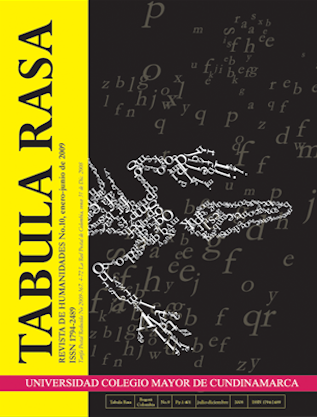The heart of cultural studies: Contextuality, constructionism and complexity
El corazón de los estudios culturales: Contextualidad, construccionismo y complejidad
Show authors biography
This essay explains my commitment to and passion for cultural studies. I believe ideas matter, that we are better off approaching the daunting tasks of transforming the world with the best knowledge and understanding possible. And I have believed, for my entire academic career, that cultural studies matters not because it is the only intellectual practice that can tell us something about what’s going on in the worlds in which we live, but because it is a different way of doing intellectual work, and as a result, it can say and do certain things, it can produce certain kinds of knowledge and understanding, which may not be so readily available through other practices. In this essay, I try to define the common project that binds together the many different forms and formations of cultural studies. I start by telling two stories: the first, largely auto-biographical, retrospectively reads my desire for cultural studies out of my experience at the Centre for Contemporary Cultural Studies (CCCS) at University in the U.K.; the second will describe the project of cultural studies as the effort to produce knowledge based on a commitment to radical contextuality and constructionism, and a political engagement with the possibilities of social transformation. Explicating the conjuncture as the specifically cultural studies notion of context, I briefly show how different formations of cultural studies can be seen as responses to different conjunctural problematics.
Article visits 1610 | PDF visits 713
Downloads
Foucault, Michel. 1991. Genealogía del racismo. Barcelona: Editorial la Piqueta.
Gregory, Derek. 2004. The colonial present : Afghanistan, Palestine, and Iraq. Malden: Blackwell Publisher.
Grossberg, Lawerence. 2005. Caught in the Crossfire: Kids, Politics and America’s Future. Boulder: Paradigm.
Hall, Stuart. 2006. Black diaspora artists in Britain: Three ‘moments’ in post-war history. History Workshop Journal. 61(1): 1-24.
Hall, Stuart. 1998. Cultural composition: Stuart Hall on ethnicity and the discursive turn. (entrevistado por Julie Drew). Journal of Composition Theory 18 (2): 171-196.
Hall, Stuart. 1997. Politics, contingency, strategy. (entrevistado por David Scott). Small Axe. (1): 141-159.
Hall, Stuart. 1995. Not a postmodern nomad. (entrevistado por Les Terry). Arena Journal. (5): 51-70
Hall, Stuart. 1992. “Cultural Studies and its Theoretical Legacies”. En: Lawrence Grossberg, Carry Nelson y Paula Treichler (eds), Cultural Studies. Londres: Routledge. pp 277-294.
Hall, Stuart. 1990. The Emergence of Cultural Studies and the Crisis of the Humanities. October (53): 11-23.
Hall, Stuart et al. 1978. Policing the crisis: mugging, the state, and law and order. London: Macmillan.
Hacking, Ian. 1999. The social construction of what? Cambridge Mass: Harvard University Press.
Hoggart, Richard. 1969 [1957]. The Uses of Literacy. London: Pelican.
Kakutani, Michiko. 2006. Bending the Truth in a Million Little Ways. New York Times. January 17.
Lakoff, George. 2008. The political mind: why you can’t understand 21st-century politics with an 18th-century brain. New York: Viking.
Manzi, Jim. 2008. Undetermined. National Review, 2 de junio. 26-31.
Mulhern, Francis. 2000. Culture metaculture. London: Routledge.
Restrepo, Eduardo. 2008. “What does it mean to do cultural studies in Colombia today?” Conferencia en Crossroads Seventh International Cultural Studies Conference University of the West Indies, Kingston, Jamaica. July 3-7.
Scott, David. 2004. Conscripts of modernity: the tragedy of colonial enlightenment. Durham: Duke University Press.
Scott, David. 1996. The aftermath of sovereignty: Postcolonial criticism and the claims of political modernity. Social Text. (48): 1-26.
Want, Sam y Sandra Aamodt. 2008. Your Brain Lies to You. New York Times. 27 de junio, A19.




